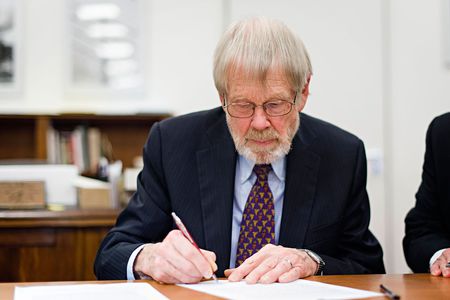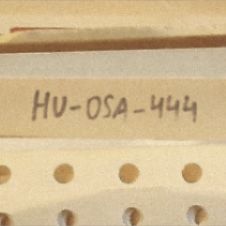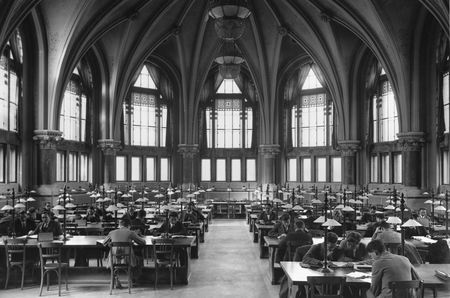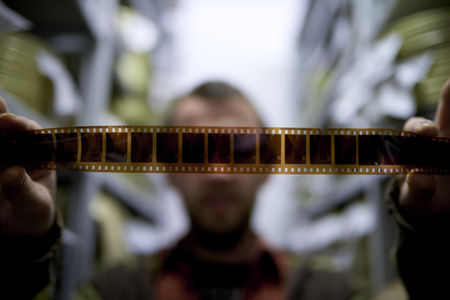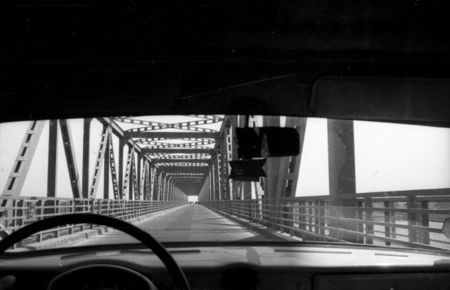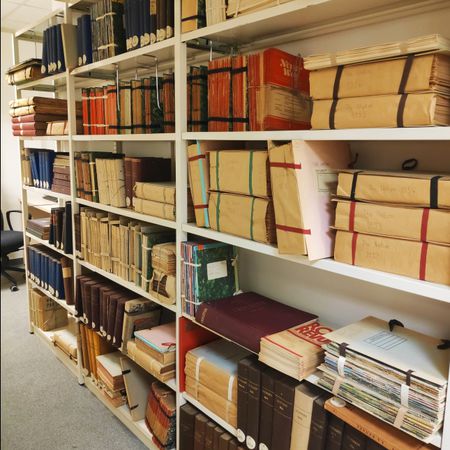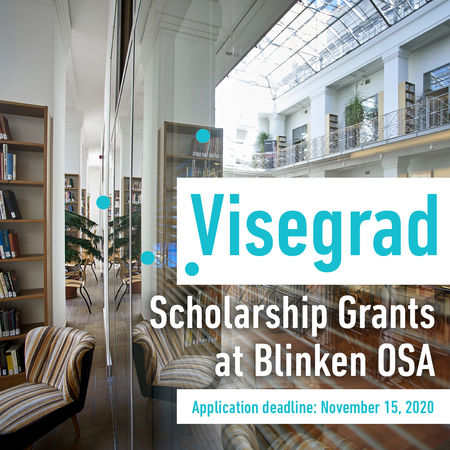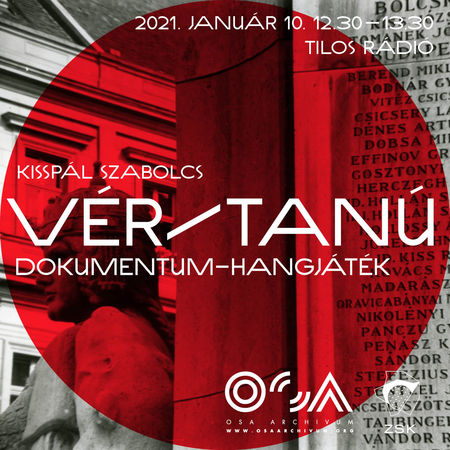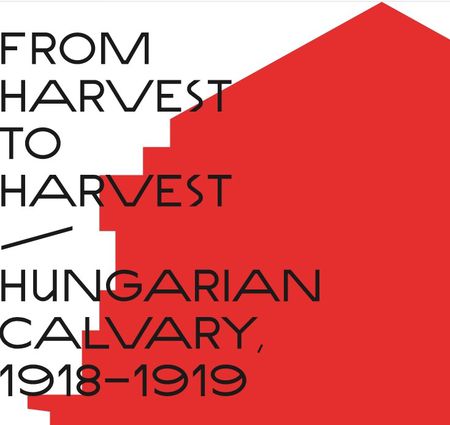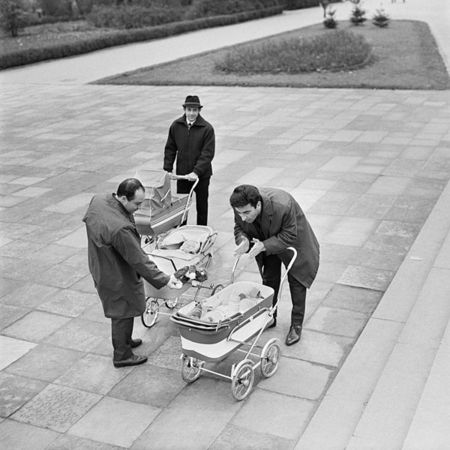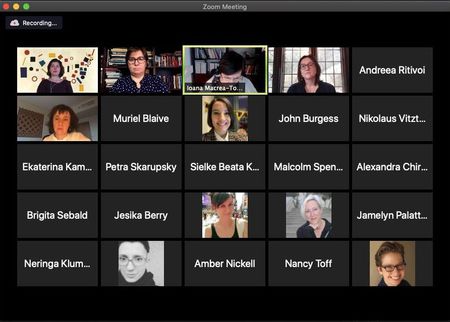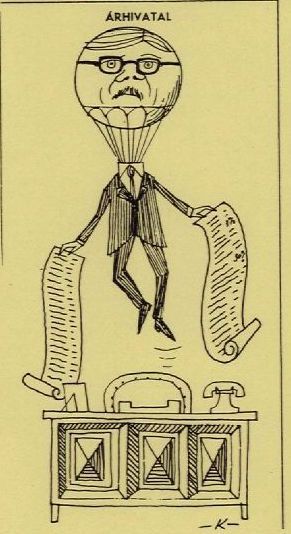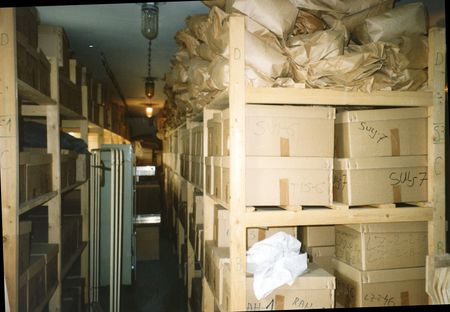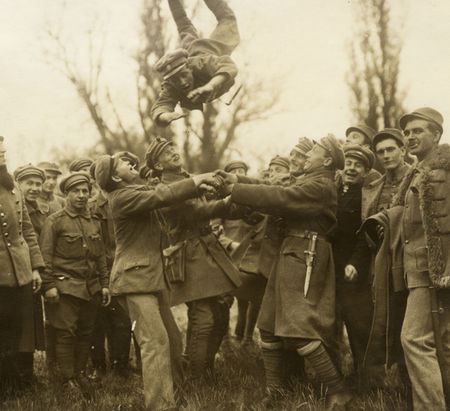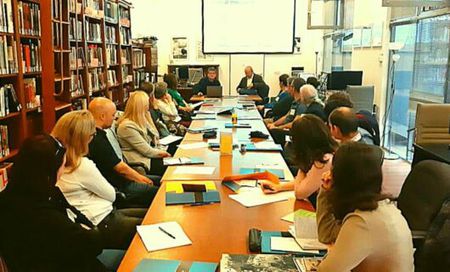Vera and Donald Blinken Open Society Archives
Press Room
Blood/Witness
Szabolcs KissPál Documentary Radio Play
Radio Tilos FM 90,3 MHz
January 10, Sunday, 2021, 12.30–1.30 p.m.
The events that took place hundred years ago are still leading to sharp, heated debates: which events do we consider national tragedies from the turn of the 1910s and 1920s? Whom do we consider victims to be emphasized as mementos for the collective memory? Whose blood was spilling from, so to say, the wounds of the nation? The documentary radio play by Szabolcs KissPál explores this issue through, on the one hand, the microhistories of the everyman of the era—the Jewish victims of the Red and White Terror—, and, on the other, through the great national narrative—the history of the Monument of National Martyrs, inaugurated in 1934, toppled in 1945, and reconstructed in 2019.
“Labor Research from Planned Economy to Savage Capitalism” is the title of a workshop conference organized by Voices of the 20th Century Archive and Research Group together with Vera and Donald Blinken Open Society Archives.
The conference is in Hungarian.
Date: December 3–4, 2020
Hungarian sociologists in the 1970s and 1980s conducted an immense amount of interview research concerning workers and broader topics of the world of labor, which would be close to impossible today. These researches, by the 2000s, became the standard professional sources of social history. Archives hold several collections that were and could become relevant sources of research. Based on these collections, this conference explores a significant tradition of Hungarian sociology; the research on labor and workers’ everyday circumstances, which began in the 1970s and 1980s, as well as its interpretations in social history and the history of sociology. The conference is inspired by the new collections acquired by the Voices of the 20th Century and the Centre for Social Sciences Research Documentation Centre.
The 17th VERZIÓ Human Rights Documentary Film Festival showcases 50 films from 39 different countries, online, 10–22 November. These films bring us closer to topics such as climate change and its consequences, freedom of the press today, political abuse of national resources, and the ongoing struggles of refugees.
Documentary filmmakers capture the transformation and challenges of humanity. By highlighting and celebrating these films, VERZIÓ aims to bring viewers closer to each other’s reality, to provide reliable information, and to raise awareness about common joys and sorrows around the world, and in doing so, to contribute to a more supportive society. This year, to achieve these goals, the festival, founded by the Blinken OSA Archives, presents films in the following sections: International Competition, Student and Debut Film Competition, Hungarian Competition, Anthropocene, In the Name of Justice, and Archive of the Planet.
Join the live events through Verzió's website or Facebook page. During the live discussions ask the guests in the chatbox or record your questions to the filmmakers and share them through the Vialog app, that you can find on the individual films’ pages and the front page as well.
Tickets and passes
The timetable of the Opening Night
The Opening Night will be broadcast live on our website and on our Facebook page.
7:00 pm Opening speech by Dr. Oksana Sarkisova, Festival Director
7:10 pm Opening performance by FreeSZFE
The Opening film 76 Days, a Chinese documentary shot in a Wuhan hospital during the first months of the coronavirus outbreak (Viewer discretion is advised.) will be available from 7:00 pm November 10 at festival.verzio.org.
Go to the site and register with a free user account.
To watch 76 Days for free, go to the film’s page, click on the “Kölcsönzés” (Rental) option, and enter the promo code: 76NAPVERZIO
Once the first 200 viewers have “rented” the film, another 400 tickets will be made available at the price of 900 HUF.
More information about tickets and passes can be found here.
9:30 pm Q&A with Hao Wu, director
During our online discussions, you will have the chance to ask your own questions in real-time but you can also prerecord questions and messages to filmmakers on the films' page
Sándor Révész – István Dobi – The Forgotten Head of State
Online book launch
András Mink, the historian talks with the author.
Who was István Dobi? It is not easy to decide who this seemingly familiar head of state really was, who at the end sank into obscurity. Perhaps ‘the youngest son of the poor man’, who struggled with poverty and nominally won half of the kingdom but could not even be a real king on his throne. Perhaps the politician, who understood Hungarian land and peasants the most, who by representing cooperatives though, has worsened the situation of those living from the land. Perhaps the puppet of Rákosi and Kádár, who struggled with alcoholism, and who clearly saw many signs of the system’s inability to function, yet his role consisted of handling the negligible cases eagerly. Perhaps one of our most popular head of state, since before ‘Uncle Árpi’, he was ‘Uncle Pista’ for the rural peasantry, and was even called ‘My Beloved Leader’ at times.
Behind the scenes of his life – his ascension and his quiet downfall –are all the peculiarities, compulsories, and compromises of the system. All such contradictions, the understanding of which brings the reader closer to the understanding of the history of Hungary.
Sándor Révész is a Pulitzer Memorial Prize-winning journalist and historian. Editor of Beszélő, then Népszabadság, currently a colleague of HVG, and the columnist of Mozgó Világ. Thousands of his articles and studies have been published in various Hungarian newspapers, as well as in newspapers in Esperanto.
From Harvest to Harvest – Hungarian Calvary, 1918–1919
Blinken OSA, Galeria Centralis
October 15, 2020 – January 10, 2021
Hungarian Calvary – Hungarian Resurrection is the title Oszkár Jászi, the Hungarian civic radical politician chose for his book on the history of the Aster Revolution and the Hungarian Soviet Republic. Jászi spent most of his life after 1919 as a political emigré; his book was published in Vienna in 1920. He concluded that for Hungarians, the Bolshevik attempt—which had “run amok,” as he put it—had for years to come discredited all democratic, liberal political ideas, movements, and any hope of a freer and more just society in Hungary.
Curated by András Mink
Co-curator: Mihály Dobrovits
Design by Virág Bogyó
From Harvest to Harvest – Hungarian Calvary 1918–1919
Blinken OSA – Galeria Centralis
October 15, 2020 – January 10, 2021
Online Opening Event
October 15, 2020, 6:00 p.m.
https://www.osaarchivum.org/
opening remarks by
MINK András
curator of the exhibition
opening remarks by
CSUNDERLIK Péter, historian
The event closes with two rarely seen/heard contemporary pieces.

